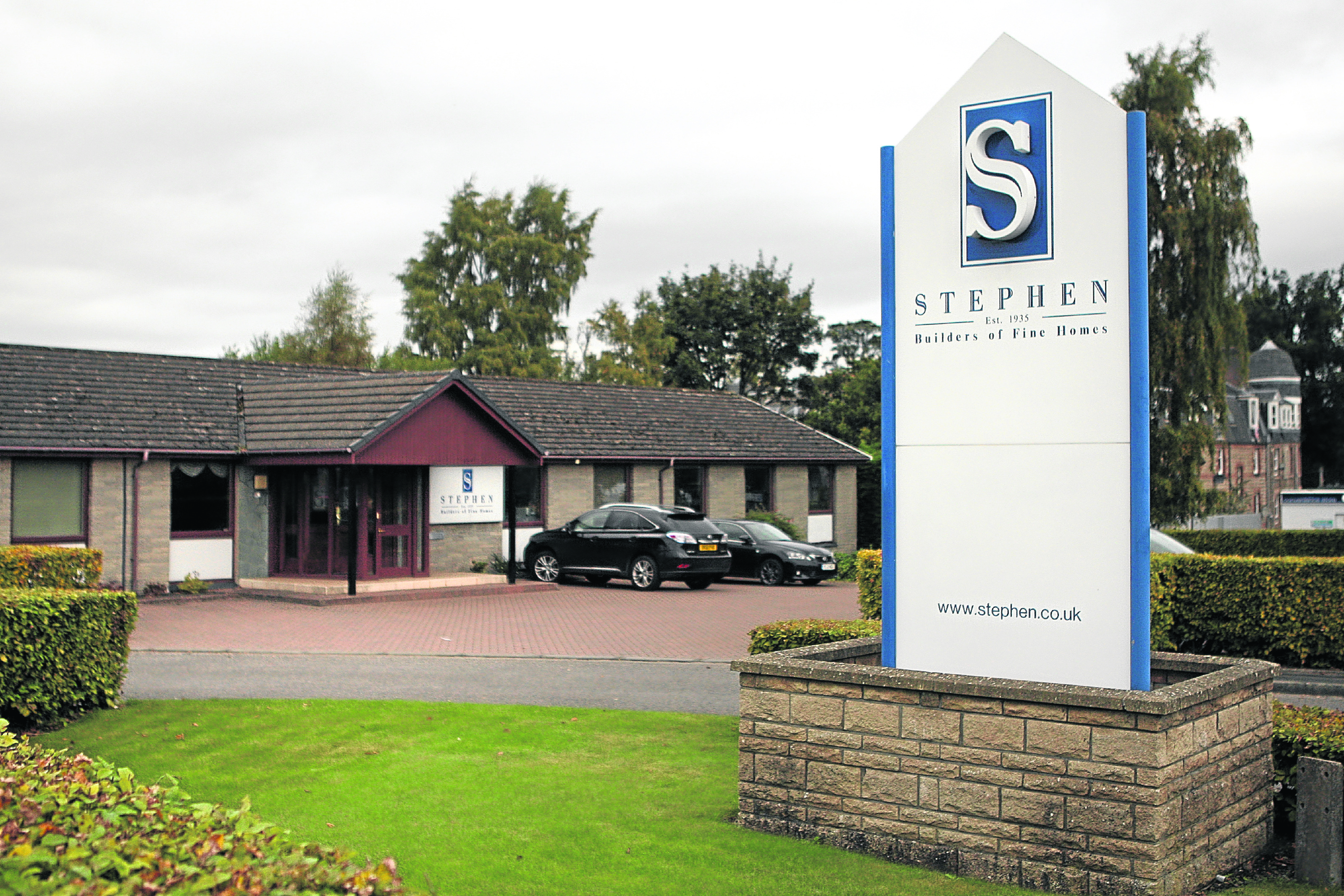Perth-based builders group A & J Stephen celebrated a good performance last year with positive growth and increased profitability.
Company secretary John Webster warned, however, that post Brexit economic uncertainty and the low oil price were impacting on current business.
Turnover for the parent group A & J Stephen (Holdings) was up by 41% at £24.9 million in the year to March 2016, and pre-tax profit more than doubled from £1m to £2.3m.
Turnover at the A & J Stephen (Builders) subsidiary was up 40% at £20.7m and pre tax profit was 79.5% higher at £1.1m.
Turnover at the A & J Stephen land acquisition subsidiary was up 46% at £4.2m and profit before tax more than doubled to just over £1m.
Mr Webster said the parent group’s 41% turnover rise reflected the recovering market sector and a general rise in customer confidence.
A&J Stephen sold 99 houses in the year over eight housing developments, the 30% rise being in line with settlement targets.
He continued: “The gross margin at 21.4% is also an improvement on the previous year.
“This is a good result given that many suppliers and subcontractors have been applying price increases as demand for their products and services grow.”
Mr Webster said the doubling of the operating profit was a robust performance that was testament to the strength of the core business.
Mr Webster said the macro-economic climate had changed significantly since March 2016 with Britain’s decision to leave the EU.
“The post Brexit shock to the UK economy and the subsequent devaluing of sterling and forecast return of inflationary pressures has undermined customer confidence,” he stated
“In the months following the referendum we experienced a drop in visitors to our show homes and a fall in revenues.”
Trading conditions in the north-east of Scotland were challenging following the dramatic fall in the price of crude oil.
A&J Stephen’s Chapelton site in Aberdeenshire performed well in the year to March 2016 contributing more than 25% of revenue.
The continuing low oil price had led to cost cutting and it had been reported that job losses would reach 120,000 by the end of the year.
“Unsurprisingly such difficulties are feeding through to the local housing market. Anticipated revenue from our Chapelton development has been considerably revised down in the current year forecast,” he warned.
